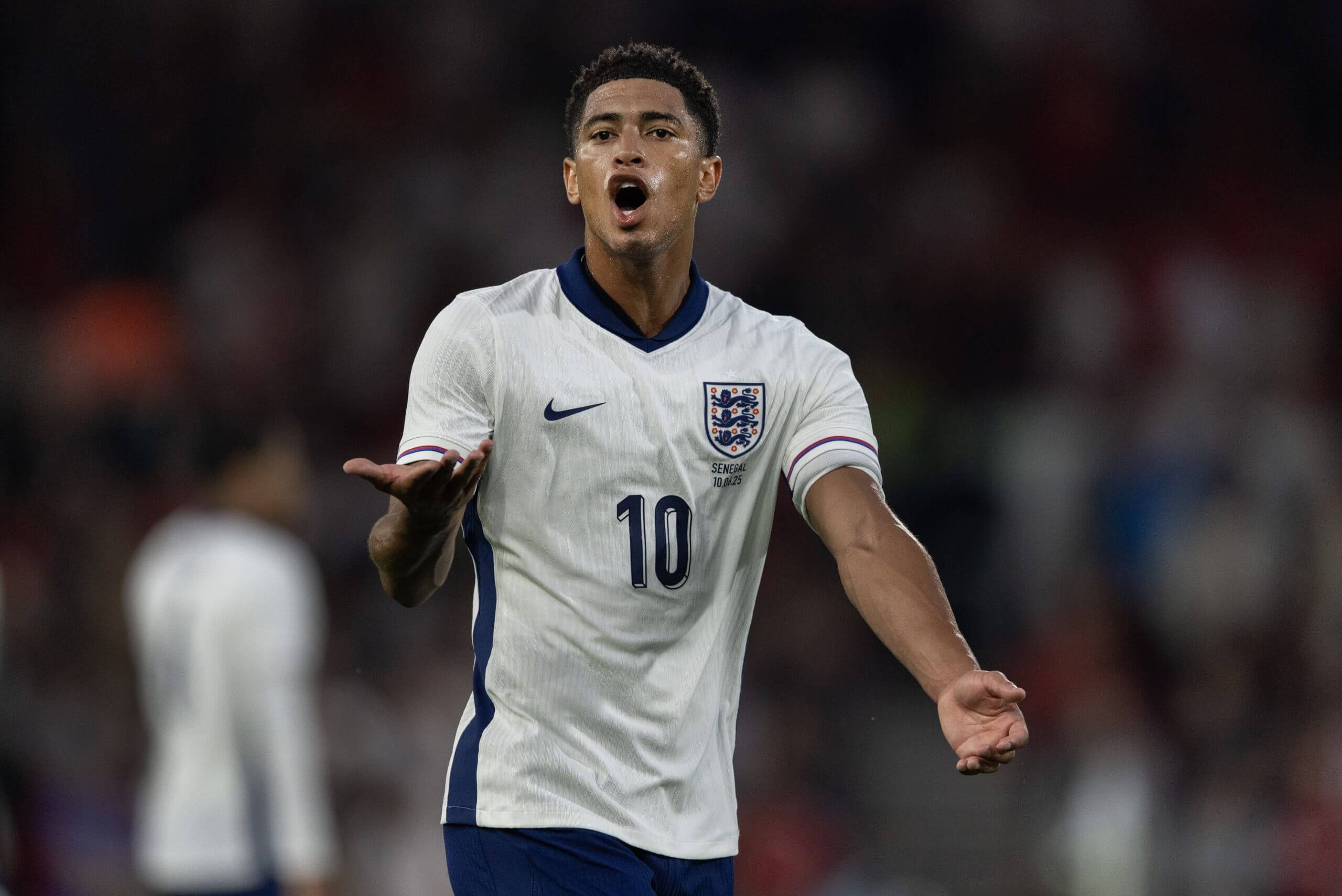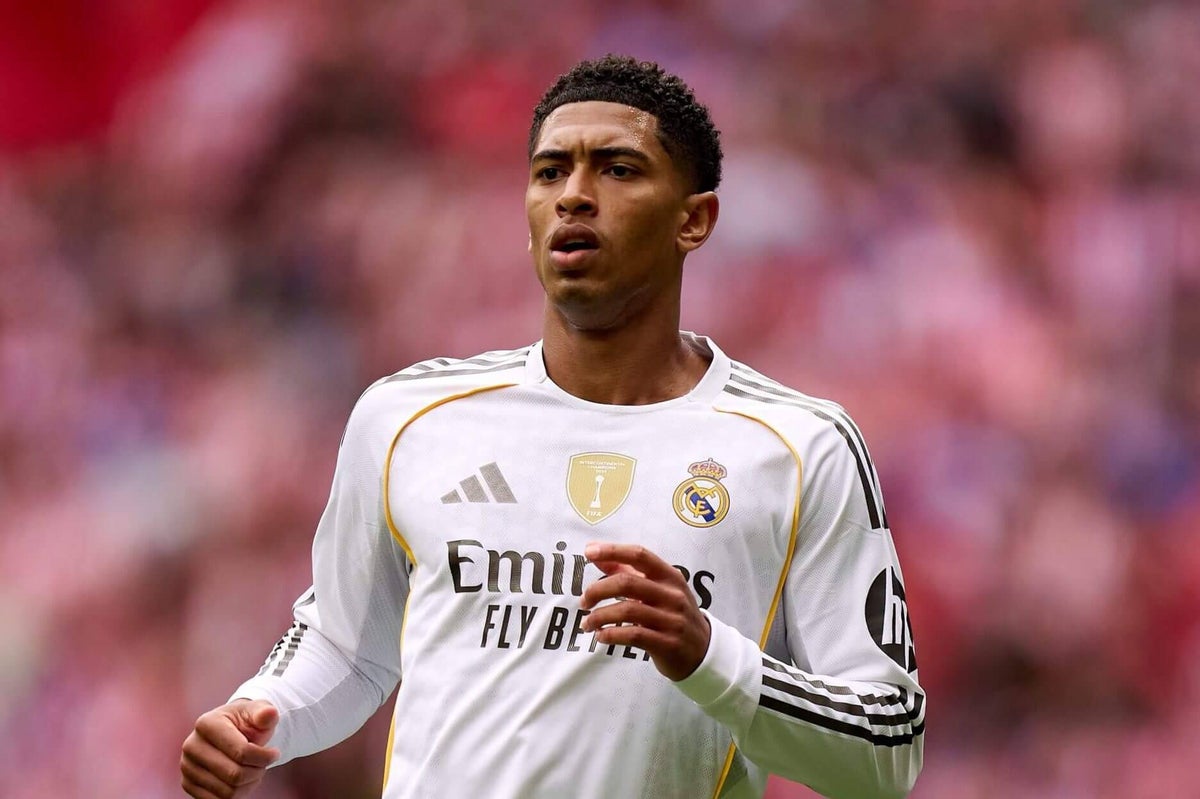Real Madrid midfielder Jude Bellingham has called on more athletes to “show vulnerability” to tackle the “stigma around talking about mental health”.
On Friday, World Mental Health Day, the England international addressed the importance of athletes letting their guard down after explaining he used to read “everything” that was said about him on social media.
The 22-year-old spoke of the limits that should be put on “horrible” comments but emphasised the value of having a support system and opening up.
Speaking to Laureas Sport, he said: “With the development of social media and technology, there are more ways to attack someone.
“I think there is still a stigma around talking about mental health. I know there have been times when I’ve felt vulnerable, doubted myself, and needed someone to talk to, but instead, I’ve tried to maintain that macho-athlete image of ‘I don’t need anyone’.
“The truth is, I do need someone, just like everyone else. And you’ll feel much better if you talk about your feelings and emotions.”
Bellingham continued: “As athletes, it seems like we have the world at our feet or in our hands. But the reality is that if we are able to show our vulnerability, it opens up a broader dialogue for people who are struggling in the dark. It is the duty of people like me, and those of us in these positions, to be role models.”
Since coming through Birmingham City’s academy, Bellingham has established himself as one of European football’s most recognisable names and has developed an on-pitch persona for being a confident and outspoken player.
He has made 105 appearances for Real Madrid since signing for the La Liga side in June 2023 from Borussia Dortmund, registering 38 goals and 28 assists, and in 2024 finished third in the Ballon d’Or rankings.

(Visionhaus/Getty Images)
“When I was a young player in Birmingham, I used to type my name into Twitter and read everything that was being said,” he said.
“But even if the comments were positive, I quickly decided: ‘Why should I let the opinions of people who don’t know me validate what I think of myself?’ I believed I was a good player before I read it on Twitter, so what was the point of reading what others had to say?
“Of course, if I came across negative comments, the effect was the opposite. So, again, I asked myself: ‘Why am I putting that on my own mental health?’
“There is already enough negativity and pressure in professional sport without going looking for it.”
He also called on organisations to do more to place restrictions on what can be said on online platforms while acknowledging the necessity of mental support for athletes.
If you would like to talk to someone after reading this article, please try Samaritans in the U.S. or the UK. You can call 116 123 for free from any phone.
